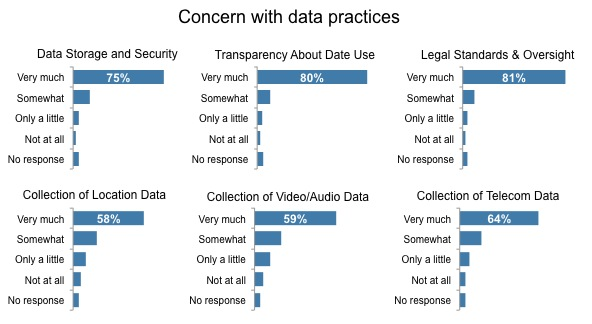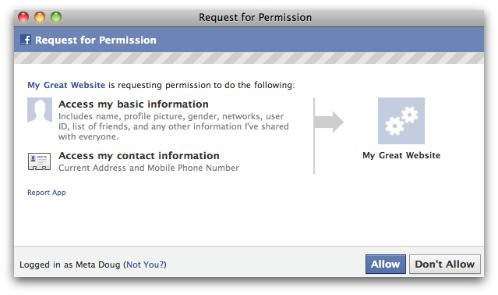
Image credit: cdn-static.zdnet.com
The digital marketing industry embraces more advanced steps in measuring data with respect to their conversion goals, increase search ranking and growing their brand’s popularity online. With the advent of big data and analytics tools, digital marketers have more leeway in obtaining data, analyze them and apply business intelligence to improve their market and attracting target customers with high ROI in mind through improving conversion rates using data analytics.
Digital marketers seem to be too engrossed in using more innovative means of marketing their business that there is one aspect of their digital marketing that should be a high concern yet often neglected as it can give a better and a long term turning point of their business success and that is privacy. The arsenal of analytic tools that digital marketers can use in their business SEO and marketing campaigns is highly dependent on big data that is collected from the consumers. Respecting the consumer privacy in your digital marketing should be a business etiquette that every marketer should observe.
The big data and privacy concerns
Image credit: www.whitehouse.gov
The advent of big data analytics has brought privacy concerns as a growing issue for the consumers. While it is the goal of marketers to obtain data in order to enhance its ability to connect their business to the target consumer by analyzing customer behavior, some consumers felt that many companies have been taking their personal information beyond what is necessary. Casting doubts from the consumers on how entrepreneurs use their personal information while collecting data from them can jeopardize the trust that every business enterprise should build with their customers. According to Dan Kohn, a corporate marketing vice president at Pitney Bowes, the consumers are aware of the value of their data and that the value of their privacy is likewise important to them. This information was taken through a survey made among the consumers across the US, UK, France and Germany. It appears that the consumers are willing to share their data, but only to a reasonable extent. Privacy remains more important to the consumers and expects marketers to give it due respect when trying to gather data for their business analytics undertakings.
Respecting privacy – what it means to your business
In the surveys conducted among the consumers in taking their pulse regarding how they feel about the big data analytics approach of marketers for marketing their products and services, some prospective customers appear to become irritated upon receiving unsolicited emails that tend to be “pushy” in prodding them to provide their personal information. Others are getting more highly concerned about how companies are able to track down and obtain their private information. At some point, the process of obtaining private data by online marketers has the chilling effect of making the consumers feel threatened as far as their privacy is concerned.
Businesses that do not respect the privacy of their customers will tend to lose the latter’s trust which is an important component of their business success. While gathering big data for business analytics purposes can provide a wealth of information about customer behavior and preferences for instance, when done without respecting the privacy of the consumers, the long term success sought to achieve by big data analytics will no longer become viable when customers lose trust and confidence in them. Thus, respecting the consumer privacy cannot be under emphasized here.
Respecting the privacy of the consumer in digital marketing
Digital marketers need data and customer information in order to successfully undertake a meaningful big data analytics. The collection of data is indispensable for business analytics and the good news is that the majority of the consumers are open about sharing their personal data as long as they are assured of their privacy. So, how digital marketers can now resolve the issue on how to optimize their ability of obtaining big data without breaching privacy of their consumers? Here are some of the viable strategies that can help marketers restore the ecosystem of trust between their business and the consumers.
Image credit: sophosnews.files.wordpress.com
- Before collecting the data of your consumers, make sure to take the time to evaluate what’s important data to ask the consumer to share that are only relevant for the big data analytics purpose.
- Provide a disclosure term to the consumers, making them understand how their is collected and used and for what purpose.
- Give the consumer the option to change their minds about consenting in tracking down their shopping activities. Giving them an opt out option will put them at ease knowing that they are not perpetually tied down and still in control of their privacy of whether to share their personal information or not.
- Create a trust framework between your business data collection policy and that of your customers. Give the consumers a detailed information about the tools you are using for gathering their personal data and the security process used in collecting them. Providing them the legal structure of your big data framework will also put them at ease.
- Use data by reference strategy strategy where you can collect customer data by subscribing directly to your customer’s cloud data. This is very useful for bigger companies that collect huge repeated data from their customers. It is also a feasible cost effective solution for the rising data storage costs for companies. This will speed up the data sharing process between the digital marketing company and their client while giving the clients more control on what type of data and information will be available for data cloud sharing.
- Employ IT employees with a wider knowledge about data security and privacy, including the risks and available solutions in protecting their customers’ data and privacy.

